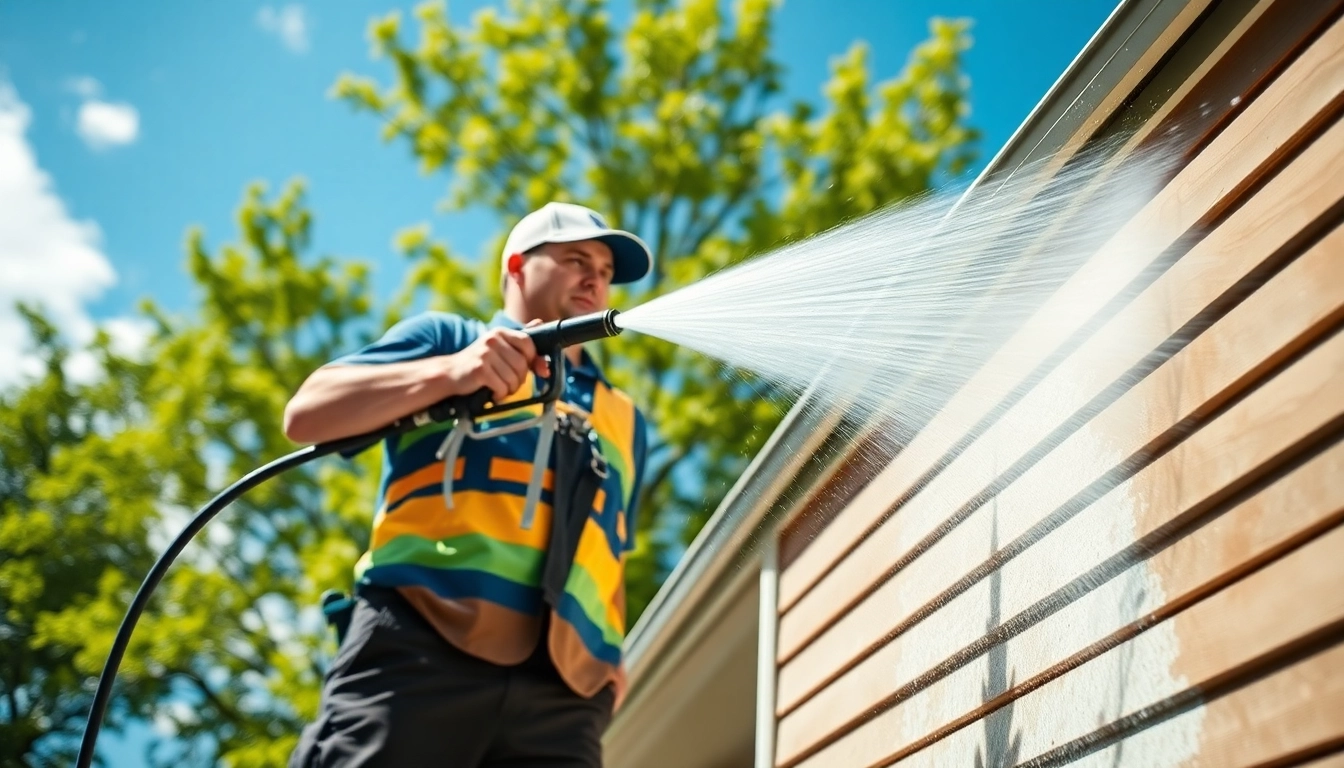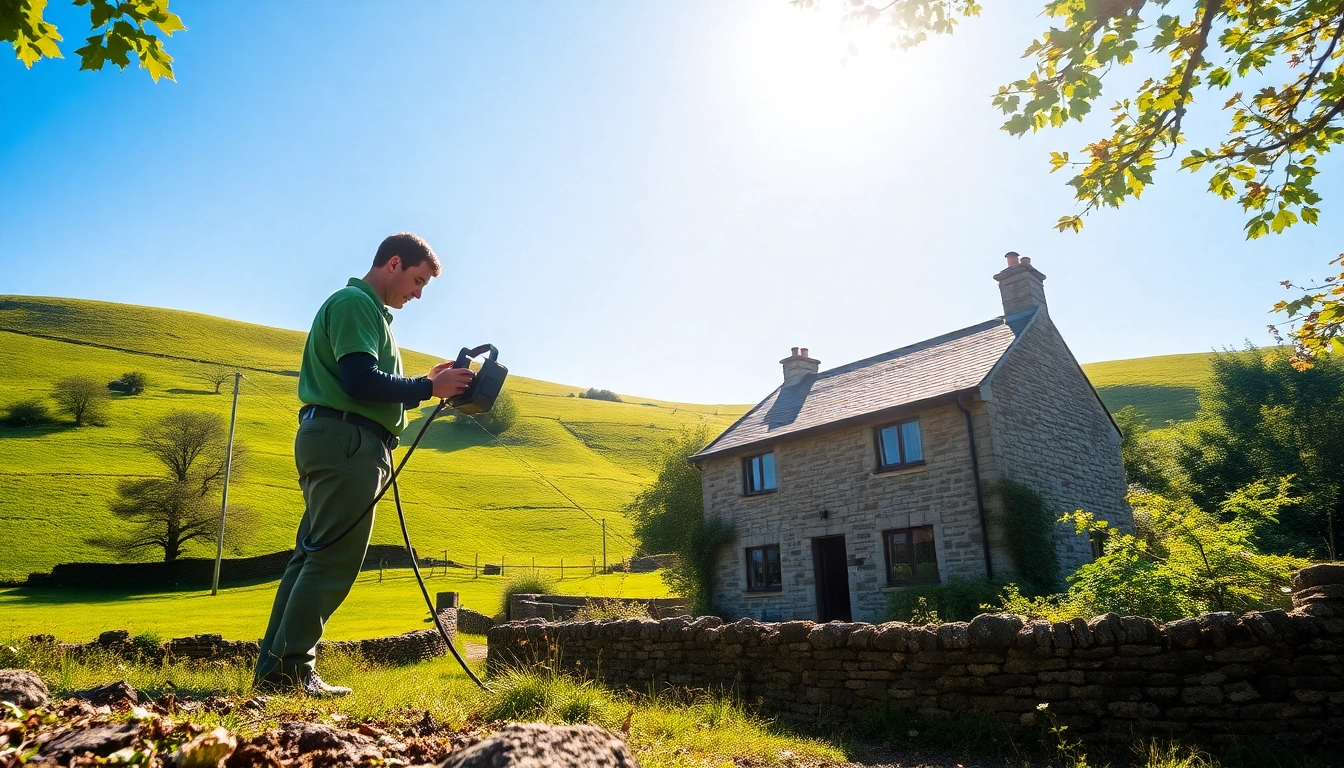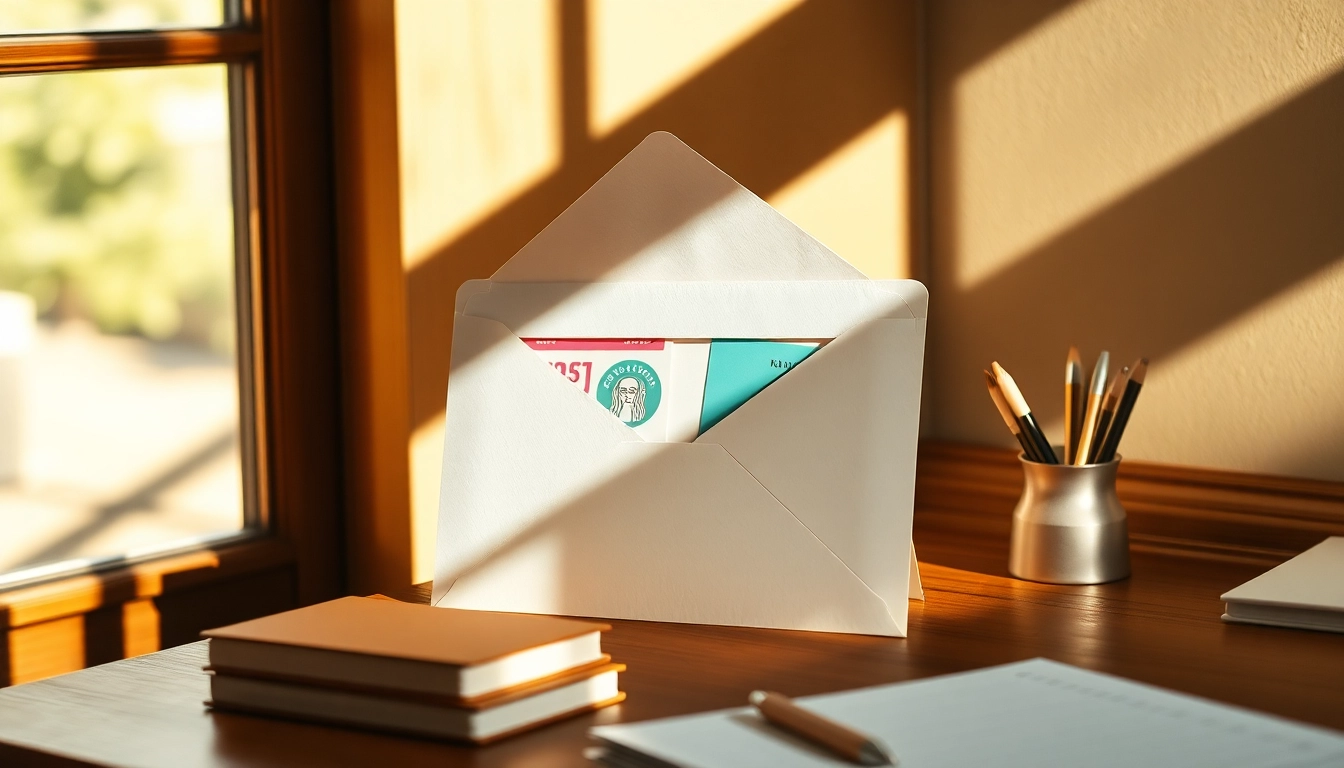Understanding Pressure Washing: What You Need to Know
What is Pressure Washing?
Pressure washing, often referred to as power washing, is a cleaning method that utilizes high-pressure water spray to remove dirt, grime, mold, loose paint, and various contaminants from different surfaces. This technique is famous for its effectiveness in both residential and commercial cleaning applications. It typically employs a motorized pump to force water through a nozzle at a high velocity, allowing for thorough cleaning of a wide range of materials, including concrete, wood, and metal.
Benefits of Pressure Washing for Your Property
Engaging in pressure washing offers numerous benefits beyond mere aesthetic improvements. Here are some key advantages:
- Enhanced Curb Appeal: Clean surfaces are more visually appealing, and a well-maintained exterior significantly boosts property value.
- Preventative Maintenance: Regular pressure washing removes harmful contaminants, extending the lifespan of surfaces and reducing the need for costly repairs.
- Health and Safety: Mold, mildew, and algae can pose serious health issues. Power washing eliminates these hazards, providing a safer environment.
- Environmental Benefits: By using high-pressure water, fewer chemicals are typically required compared to traditional cleaning methods, making it a more eco-friendly option.
Common Surfaces For Pressure Washing
Pressure washing is versatile and can be used on a variety of surfaces, including but not limited to:
- Driveways: Removal of oil stains, dirt, and other contaminants.
- Decks: Cleaning wooden decks to remove grime and prevent wood rot.
- Patios: Restoration of patios to their original look.
- Roofs: Elimination of moss and algae build-up, which can cause damage over time.
- Exterior Walls: Cleaning siding, brick, and stucco to enhance the overall look of your property.
How to Choose a Pressure Washing Service
Factors to Consider When Hiring Professionals
When selecting a pressure washing service, it’s essential to consider multiple factors that ensure quality and reliability:
- Experience and Expertise: Look for companies with a significant track record and expertise in various surface types and cleaning techniques.
- Insurance and Certification: Ensure the company is insured and certified to protect against any damages or accidents during the service.
- Equipment Used: Inquire about the type of pressure washers and cleaning solutions the service uses to ensure they are up to date and environmentally friendly.
Comparing Quotes: What to Look For
Once you have gathered quotes from different services, focus on the following aspects to make an informed decision:
- Pricing Structure: Understand whether the company charges by the square foot or offers package deals and be wary of very low rates, which can signify poor quality of service.
- Inclusions in the Quote: Verify what services are included in the pricing – some companies may charge extra for applying cleaning solutions or for additional surfaces.
- Warranty and Satisfaction Guarantee: Reputable companies often provide guarantees on their work, ensuring customer satisfaction.
Reading Reviews: Importance of Customer Feedback
Customer feedback provides invaluable insight into the services offered. Websites like Yelp and Google Reviews can help in gauging customer satisfaction. When reading reviews, pay attention to:
- Consistency: Look for patterns in the feedback, such as remarks about reliability and quality of work.
- Response to Complaints: Assess how the company handles grievances and whether they actively engage with their customers.
- Specific Experiences: Take note of reviews that detail experiences similar to your own needs, such as cleaning specific surfaces or timely service.
Preparing Your Property for Pressure Washing
Essential Steps to Take Before Service
Proper preparation not only helps in achieving the best results but also ensures safety during the cleaning process. Here are steps to consider:
- Remove Obstacles: Clear the area around the surfaces to be cleaned, including furniture, decorations, and potted plants.
- Secure Windows and Doors: Ensure all windows, doors, and vents are closed or sealed to prevent water from entering the property.
- Inspect Surfaces: Conduct a thorough inspection of surfaces to point out any areas requiring special attention.
Safety Precautions to Consider
Safety should always be a priority during pressure washing. Here are some measures to keep in mind:
- Wear Protective Gear: Use goggles, gloves, and non-slip footwear to protect yourself from high-pressure water and debris.
- Understand Equipment Operation: If you plan to pressure wash yourself, familiarize yourself with the equipment and its operation manual.
- Use Caution with Electricity: Avoid using electrical appliances such as pressure washers in wet conditions and maintain a safe distance from electrical outlets.
Understanding Your Property’s Needs
Different surfaces require different levels of pressure and types of cleaning solutions. Consider these factors:
- Surface Material: Identify the types of surfaces on your property, such as delicate wood or robust concrete, to determine suitable pressure levels.
- Extent of Dirt Build-up: Evaluate how much dirt, mold, or other substances need to be removed, which will guide the choice of pressure washing settings.
- Seasonal Considerations: Plan your pressure washing during appropriate seasons to avoid extreme weather, which can impact effectiveness and safety.
DIY vs. Professional Pressure Washing: Pros and Cons
Understanding Equipment Needs for DIY Pressure Washing
For those considering a DIY approach, it’s vital to understand the equipment required for effective pressure washing:
- Pressure Washer: Purchase or rent a pressure washer suited to your cleaning needs. Electric models are ideal for lighter tasks, while gas-powered units are better for larger, more challenging projects.
- Cleaning Solutions: Different jobs may require specialized detergents that facilitate the removal of mold, algae, or grease.
- Accessories: Consider various nozzles, extension wands, and surface cleaners to enhance versatility during your cleaning.
Cost Comparisons: DIY vs. Hiring a Pro
The cost of pressure washing can vary significantly between doing it yourself and hiring a professional:
- DIY Costs: Consider the cost of purchasing or renting equipment, cleaning solutions, and personal time invested.
- Professional Costs: Hiring professionals usually entails a higher upfront cost, but may save you time and ensure quality results.
- Long-Term Considerations: While DIY may seem financially appealing initially, professional results may offer greater long-term value, reducing the risk of damage and future cleaning costs.
When to Call in the Professionals
Deciding whether to tackle cleaning projects yourself or hire a professional requires careful consideration. You should consider contacting specialist services if:
- Safety Concerns: Heights, delicate surfaces, or the use of industrial-grade equipment may necessitate professional assistance.
- Time Constraints: Busy schedules may make it impractical to invest personal time into cleaning activities.
- Specific Requirements: Complex jobs involving multiple surface types or extensive preparation may be beyond the capabilities of a DIY approach.
Maintaining Clean Surfaces After Pressure Washing
Best Practices for Ongoing Maintenance
Once your property has been pressure washed, following up with a regular maintenance routine can prolong cleanliness:
- Regular Inspections: Conduct periodic checks on your surfaces to identify and address early signs of mold or buildup.
- Scheduled Cleanings: Set a routine for pressure washing based on your surroundings, typically every one to three years depending on the area.
- Seasonal Preparations: Prepare for seasonal changes by clearing debris that can lead to water accumulation and future cleaning challenges.
Long-Lasting Effects of Pressure Washing
One of the key advantages of pressure washing is the long-lasting effects it offers:
- Deep Cleaning: Well-pressure washed surfaces maintain their clean appearance longer, making it less likely for contaminants to return immediately.
- Protection Against Damage: By removing harmful substances like mold and dirt, pressure washing can help shield your property against premature aging and decay.
- Enhanced Aesthetics: Keeping surfaces clean and fresh not only elevates property value but also creates a welcoming atmosphere.
When to Schedule Follow-Up Services
Understanding when to engage in follow-up cleaning can significantly contribute to maintaining your property’s appeal:
- Routine Scheduling: Set follow-up appointments based on your environment – high-traffic areas may need attention sooner than others.
- After Severe Weather: Post-storm assessments can determine if surfaces have sustained damage or dirt buildup.
- Before Selling or Renting: A thorough cleaning can make a significant difference in property presentation during sales or rental showings.




